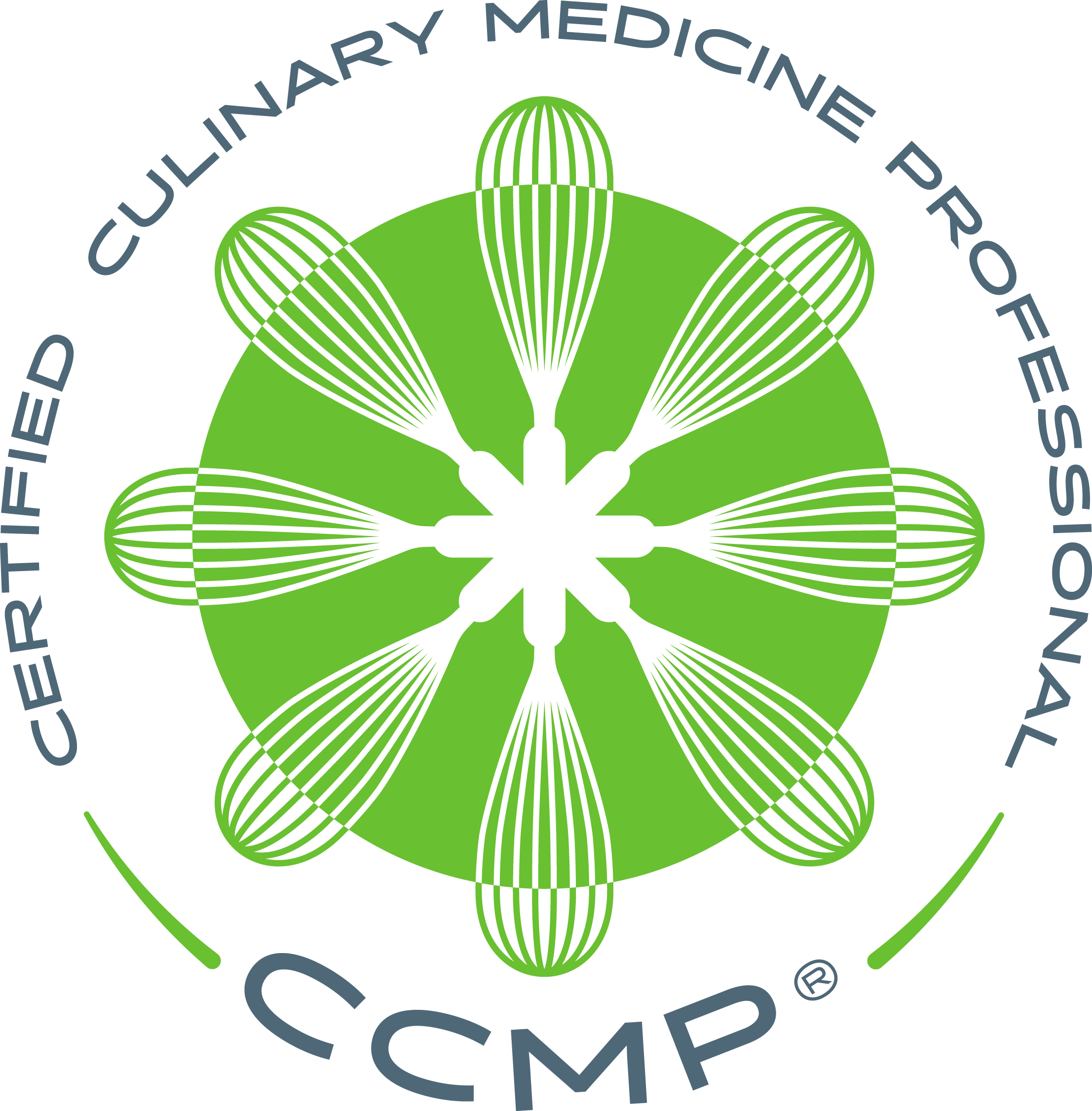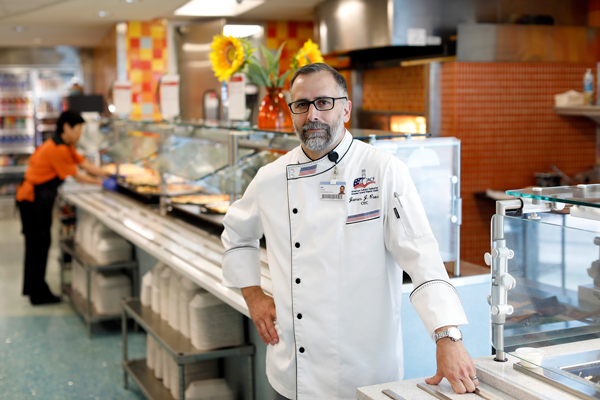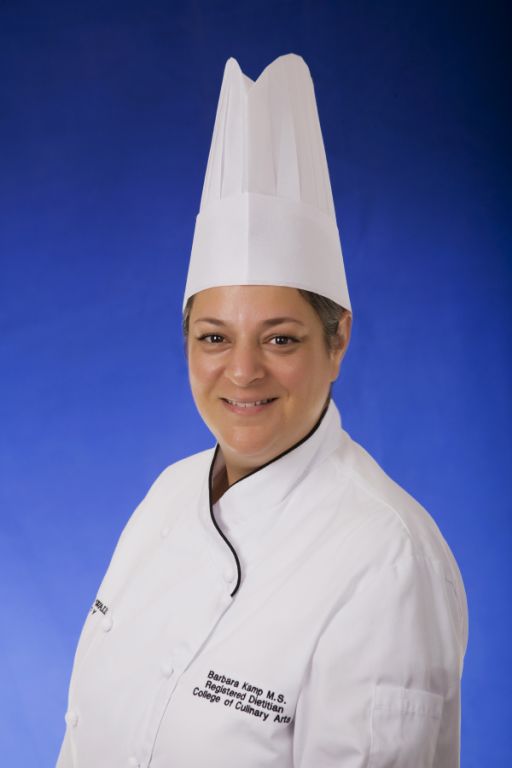
Health Meets Food in the Kitchen
31 October 2022New nutrition education certification specifically designed for chefs and culinary students interested in the intersection of positive health outcomes and food.
By Lisa Parrish, GMC Editor
Feedback & comments: This email address is being protected from spambots. You need JavaScript enabled to view it.
Chefs and cooks train for a foodservice career by developing their cooking skills, learning about restaurant management, and planning menus. Food nutrition is a topic budding chefs may – or may not – cover during their training. And, once on the job, the pressure and pleasure of cooking sharpens the hands-on experience. Cooks become adept at layering flavors, understanding textures and learning food presentation’s benefits. What is not first-hand knowledge is how that dish might affect someone with high blood pressure. Or, whether the beautifully prepared dish will set off a diner’s gastrointestinal disease.
 Now, there is a certification that helps bridge the gap between cooking food that is both delicious and nutritionally healthful.
Now, there is a certification that helps bridge the gap between cooking food that is both delicious and nutritionally healthful.
CAFÉ’s June Leadership Conference in 2022 hosted the launch of a new ACF-certified culinary medicine certification, Certified Culinary Medicine Professional: Foodservice Professional (CCMP: Foodservice Professional). The first-of-its-kind culinary medicine program, offered by the Culinary Medicine Specialist Board, enhances a chef’s ability to prepare food across a diverse range of nutritional needs.
As referenced in the Gold Medal Classroom story, “The Connection Between Eating Away from Home and Health,” the nation is facing a series of chronic illness crises relating to obesity. Chef Barbara Kamp, MS, RDN, Program Director of the Culinary Medicine Specialist Board, believes chefs are uniquely positioned to play a central role in changing the way Americans eat. “Chefs have the skills but not the nutritional understanding. We help by providing the knowledge of macronutrients, micronutrients and lifecycles,” she said. The program translates complex science nutrition into the art of the kitchen.
The culinary medicine program’s goals are to:
- Evaluate and apply current research to menu and recipe development
- Enhance the quality of prepared meals
- Improve overall diet; especially targeting diet-related chronic illnesses

James Cross, CEC, Project Specialist in Nutritional Services for Corewell Health West, participated in a pilot culinary medicine program in the spring of 2022. “The courses opened my eyes,” he explained. “Chefs are not used to thinking about things in terms of amino acids. We think in terms of fat, salt and flavor.”
Cross was already familiar with specialty diets in his healthcare foodservice position. “I was surprised to learn that food can be used for anti-inflammatory purposes. Or, that some food created gas and it was a problem for people with gastrointestinal issues,” he said. “It opened my eyes. I am thinking from a different perspective now and it’s creating a difference for our patients and guests.”
 Kamp said that chefs have the skills and the culinary medicine program provides the nutritional understanding. “I was immediately interested when I heard about the program,” Cross said. “There is no coursework for foodservice professionals. Most of the information is geared toward dietitians or doctors. I found myself asking, ‘Why do I do it this way?’”
Kamp said that chefs have the skills and the culinary medicine program provides the nutritional understanding. “I was immediately interested when I heard about the program,” Cross said. “There is no coursework for foodservice professionals. Most of the information is geared toward dietitians or doctors. I found myself asking, ‘Why do I do it this way?’”
The Certified Culinary Medicine Professional program is a hybrid 45-credit curriculum comprised of online education, live conference learning and hands-on teaching kitchen modules. The program can be completed by individual chefs or culinary students or the curriculum incorporated into a culinary school’s curriculum.
The program is broken down into 20 modules whose content fits within a three-tier certificate format. After completing the full curriculum, attendees are qualified to sit for the CCMP: Foodservice Professional proctored exam.
Click here to review the course modules and tiered certificate options.
Kamp explained how a culinary school might incorporate the curriculum into existing classes. “For example, in the knife skills class you might teach how to make soups with the cut vegetables. That could lead to a lesson on macronutrients.” She also said schools could group modules to become courses, depending on the school’s credit hour policies.
For chefs and students interested in learning more about the Certification of Foodservice Professionals, click here. Culinary schools interested in finding more information about the curriculum can contact Kamp at This email address is being protected from spambots. You need JavaScript enabled to view it..
